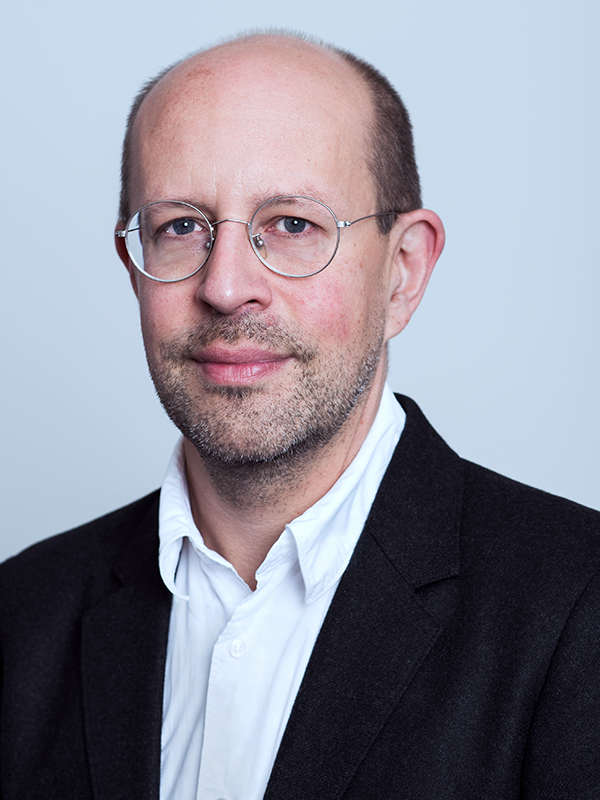
Philipp Ekardt ist der Wissenschaftliche Koordinator des 'Traveling Forms'-Projekts.
Akademische Biographie
Vor seinem Wechsel an die Universität Konstanz war Philipp Ekardt Gastprofessor am Institut für Kunstwissenschaft und Ästhetik der Universität der Künste in Berlin, Mitarbeiter von Forschungsprojekten am Warburg Institute in London und an der Freien Universität Berlin, wo er auch lehrte, und hatte Fellowships am eikones Zentrum für die Theorie und Geschichte des Bildes / Universität Basel (gefördert durch die NOMIS Stiftung), am Cinepoetics Center for Advanced Film Studies an der Freien Universität Berlin und am Deutschen Forum für Kunstgeschichte in Paris inne. Er studierte Kunstgeschichte und Literaturwissenschaft in Berlin, Paris und an der Yale University, wo er auch promovierte. Er ist ehemaliger Chefredakteur der in Berlin erscheinenden Zeitschrift „Texte zur Kunst“ und hat in kleinerem Rahmen am Bard Center for Curatorial Studies (NYC) und am Department of Classics des University College London gelehrt bzw Abschlussarbeiten betreut sowie als Gastdozent an der Zürcher Hochschule der Künste (MA Fine Arts) und an der Umea Art School gearbeitet.
Project at Traveling Forms
Entitled How Attitudes Became Forms, Philipp Ekardt’s project investigates the emergence and circulation of the so-called Attitudes of Lady Emma Hamilton. In performances for highly select audiences, Hamilton adopted poses that reminded her late-18th-century contemporaries of stances and gestures familiar from figures on ancient Greek vases. Within the span of a few years these exclusive presentations had become a reference point for educated Europeans from Naples and London to Weimar and Paris, by far exceeding the horizon of their actual eyewitnesses. The project contends that at the core of this development are processes of formalization, and that the key question requiring an answer is: How the Attitudes became forms.
Further Research and Publications
In Ekardt’s wider work, his work on the Attitudes link up with investigations into the interconnection of form, dress, and neoclassical style in contemporary art, e.g. in Scottish artist Lucy McKenzie's recalibration of regionalist and feminist alternative production-histories of modernist art and fashion, and in the queer archaeologies of American Nick Mauss (including a recent essay Waxing Classic on the encounter of McKenzie’s work with two Dancers by neoclassical sculptor Canova on the occasion of her show Vulcanizzato at Pinacoteca Agnelli/Turin); as well as in the work of critics, couturiers, artists and art historians of the 1930s, based in Paris, such as Helen Grund, Elsa Schiaparelli, Madeleine Vionnet, Marcel L’Herbier, Henri Focillon, or Walter Benjamin, who developed what could be called a 'fashionable formalism': an approach which, centering on shapeshifts and trans-formations, rearticulated a wide set of references, from evolution, gender and sexuality to fashion through the lens of form. This work draws in part on research published in Ekardt's monograph Benjamin on Fashion (Bloomsbury Academic, 2020), which investigated the practice, criticism and media of 1930s Paris couture in relation to the German thinker's ideas about fashion.
Ekardt has published and lectured widely in the field of contemporary art, including recently The Cheongsam and the French Shirt. Image, Fashion, and Migration in Evelyn Taocheng Wang's Global Contemporary Art (in the artist's catalog and monograph I.M. Personally, New York, 2023), and The Members of a Chimera. Fashion-Form and Lobster Legs in Birgit Jürgenssen’s (and Other) “Missing Limbs” (in: Life and Limbs. Swiss Institute Center for Contemporary Art, New York, Milan 2022.) He has worked extensively on the writings of Aby Warburg, focusing in particular on how the art historian and cultural theorist conceived of (kinetic and affective) movement in and of images, including articles such as Bewegungsimpressionen nach der Natur. Warburg mit Vignoli (in the edited volume Aby Warburg und die Natur. Epistemik, Ästhetik, Kulturtheorie. Berlin, 2019) and Certain Wonderful Gestures. Warburg, Lessing and the Transitory in Images (in Journal of Theory, Culture, and Critique, 2016). His first monograph is Toward Fewer Images. The Work of Alexander Kluge (MIT Press/OCTOBER Books, 2018), the first study to account for the general image and media poetics which underlie the German director, media-practitioner and intellectual’s work across its many formats and technological articulations, including film, the digital, television, his writings, as well as his collaborations with Gerhard Richter and recourses to the image-production of Romantic painter C.D. Friedrich.
Kontakt
Dr. Philipp Ekardt
Traveling Forms-Project / Universität Konstanz
Bischofsvilla / Otto-Adam-Str. 5 / 78467 Konstanz
Germany
